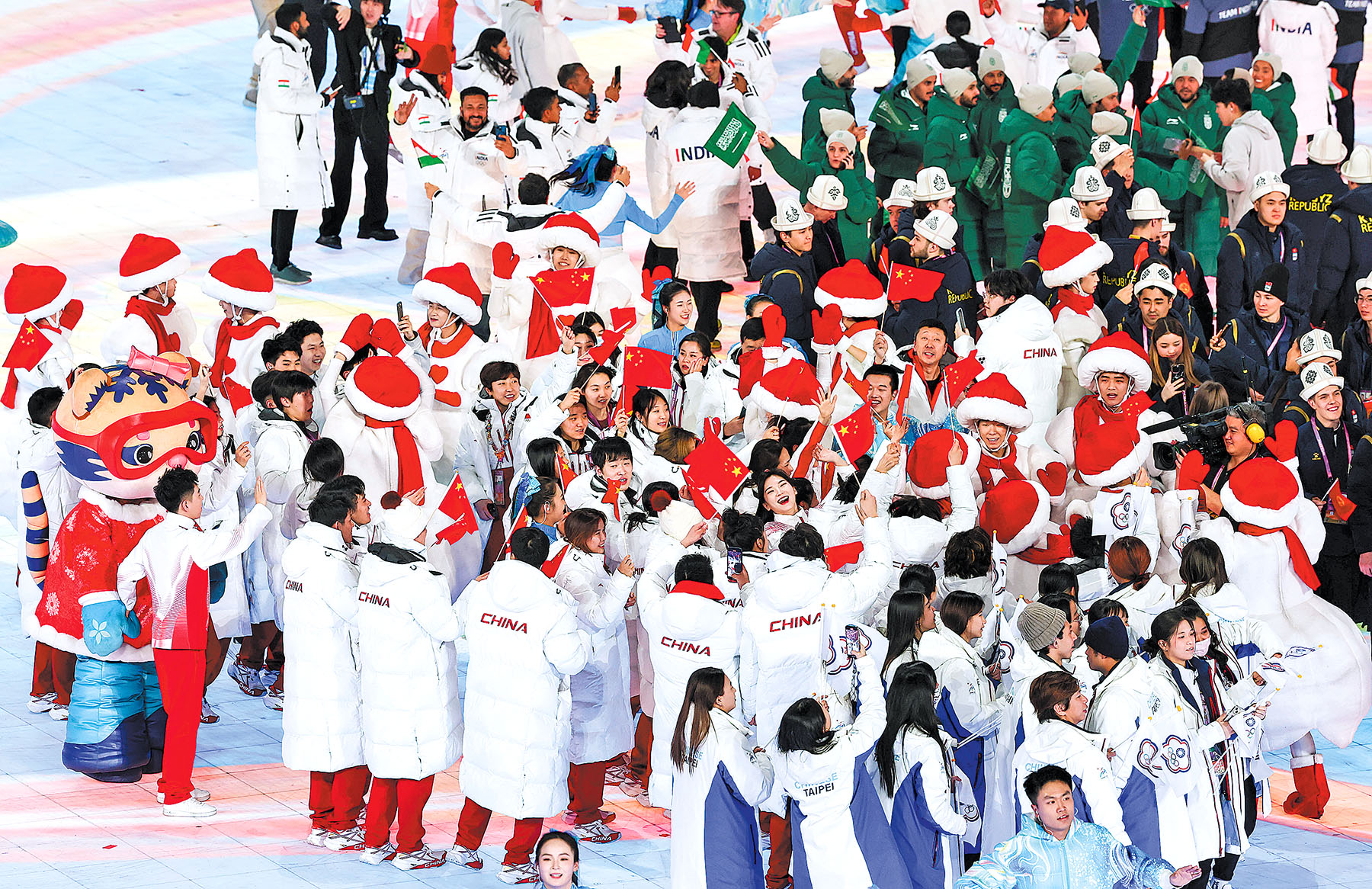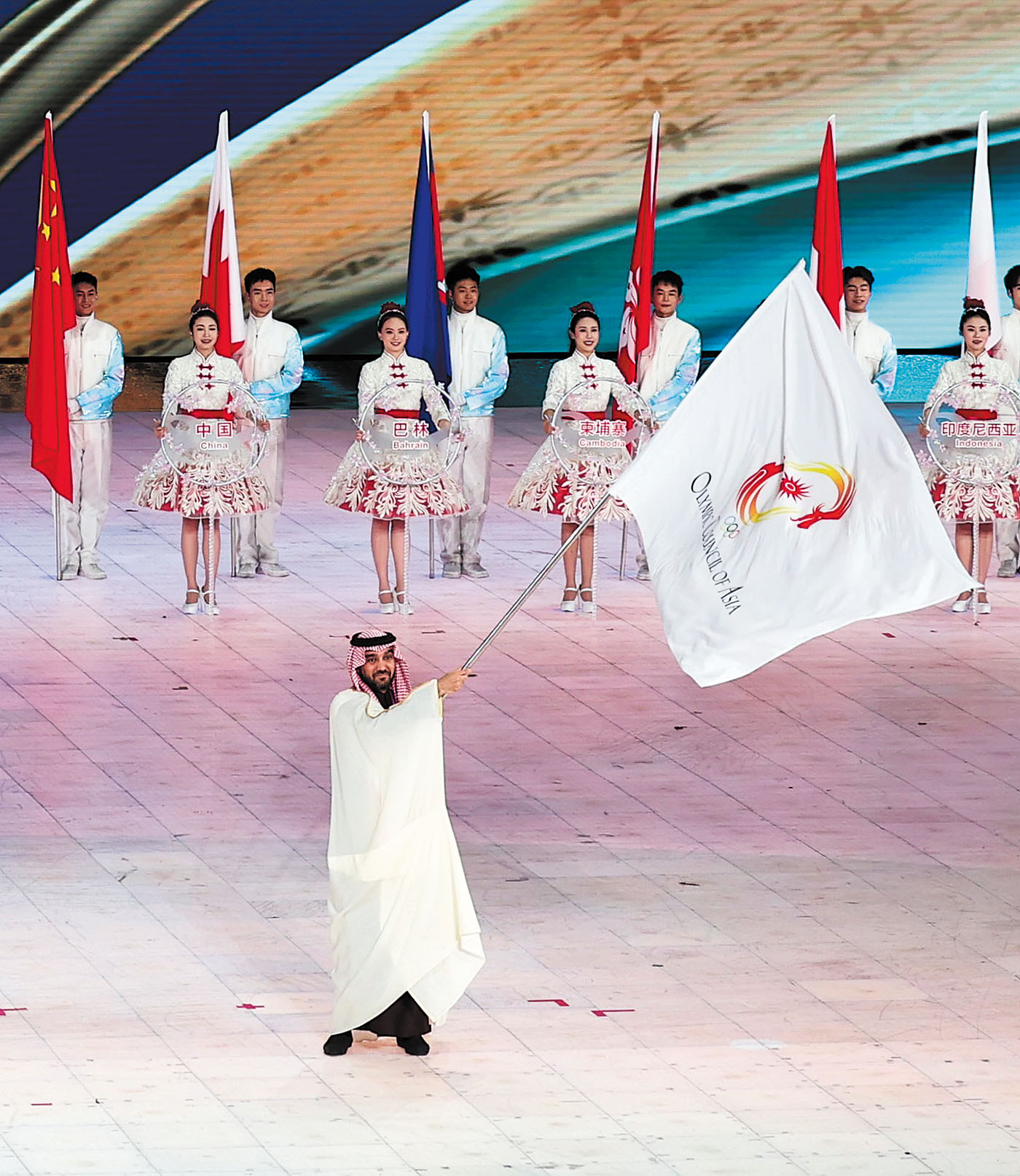Record-breaking Harbin Games hailed as most successful ever as continent shifts focus to Olympics

With Asia’s growing presence on the ice and snow celebrated and the host’s organizational expertise applauded again, the 9th Asian Winter Games ended on Feb 14 in Harbin, Heilongjiang province.
Premier Li Qiang and foreign dignitaries, including Cook Islands Prime Minister Mark Brown and Mongolian Prime Minister Luvsannamsrai Oyun-Erdene, attended the closing ceremony.
Three years after the 2022 Beijing Winter Olympic Games reshaped the winter sports landscape in China, the successful hosting of the 9th Winter Asiad has built on the legacy to further expand the thrills and chills into uncharted territories — from Asia’s hot and humid southeastern islands to its dry and sizzling deserts in the west.
The largest-scale Winter Asiad in history — attracting a record 1,275 athletes from 34 nations and regions to the provincial capital — has seen nine countries and regions appear on the overall medal table, making the 2025 edition the most evenly contested Winter Asiad since the inaugural Games in 1986.
The debuts of Cambodia and Saudi Arabia, the first Winter Asiad medal won by Thailand (men’s freeski slopestyle), and the first gold medal won by the Philippines (men’s curling), among many other highlights, have served as a strong testament to the increasing involvement of Asian countries and regions in winter sports.
“I think my colleague and I will agree that this could be the most successful Winter Asian Games. And what the Games do actually is that they not only improve elite performances, but it actually becomes a catalyst for the development (of winter sports across Asia),” said Timothy Fok Tsun-ting, first vice-president of the Olympic Council of Asia (OCA), before the closing ceremony on Feb 14.
“We have a lot more young athletes from the south and west (of Asia) taking part (than at earlier editions), we have countries in the desert sending teams … and this is how we reach the goal of development,” said Husain Al Musallam, director-general of the OCA.
With an emotional closing ceremony bringing the curtain down on Feb 14, winter sports’ once unimaginable expansion in Asia will usher in an exciting future with Saudi Arabia picking up the baton from Harbin to host the 2029 edition as the first Arab nation, and the first from West Asia, to do so.

From the traditional winter wonderland of Harbin to the ambitious alpine projects to take shape in Saudi Arabia’s Trojena mountain cluster, the Games’ progression speaks volumes for the surging interest in winter sports and these events’ potential to bring economic and social benefits for the host.
“We are preparing a big surprise for everyone at Trojena in four years time,” Ahmed Bin Dhuwayhi, chief of the Saudi Arabia delegation, said in Harbin.
“Saudi Arabia has a series of cooperation projects going on with China, such as in education, culture, and sports. We have a lot to learn from the Chinese hosts, without any doubt, in winter sports organization.”
Preparing for the Games on a tighter-than-normal schedule, Harbin, which was confirmed host of the 2025 edition only 18 months in advance, pulled off almost a mission impossible to prepare five competition venues in the city’s downtown for ice sports and eight courses at the Yabuli Ski Resort, 200 kilometers from the city center, for all the snow events, all of which are up to the highest possible standards.
The venues are all existing facilities, with some rinks and slopes having staged events at the 1996 edition, which was also hosted by Harbin, while China’s proven professionalism and know-how in organizing multi-sports mega-events, such as the Beijing 2022 Winter Olympics and Hangzhou 2023 Asian Games, have guaranteed smooth and efficient operations in Harbin.
“Harbin took over in a very short time, and the organizers have done extensive work,” said Sultan Al Busaidi, chair of the OCA’s medical committee.
With less than a year to go before the Milano-Cortina 2026 Winter Olympics open in Italy, Harbin 2025 has also offered Asia’s ambitious medal contenders an invaluable “dress rehearsal”.
The inclusion of ski mountaineering as a new Olympic discipline in Harbin 2025’s program, in particular, has helped young aspirants gauge their strength and adjust their pace as they look to scale the heights at its Olympic debut in Italy.
“Within Asia, the Chinese team is among the strongest in ski mountaineering, but there is still a gap compared to European powerhouses. We look forward to testing ourselves against them on the Olympic stage,” said Chinese skier Buluer, winner of the men’s sprint on Feb 9.
The warmth of the Chinese hosts and the breathtaking scenes in the “Ice City” of Harbin also left visitors highly impressed.
Ahmed Al Shaya, coach of Kuwait’s curling team, said: “It (Harbin) exceeded our expectations … It’s a great city, very welcoming. I like the people, I like the volunteers, they’re doing a great job.”
Contact the writers at sunxiaochen@chinadaily.com.cn


